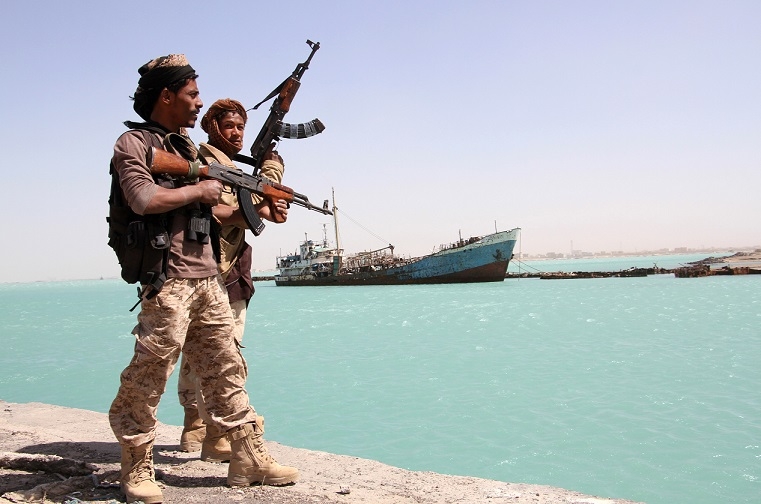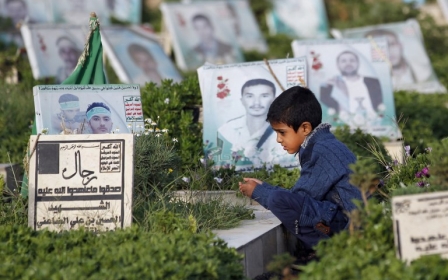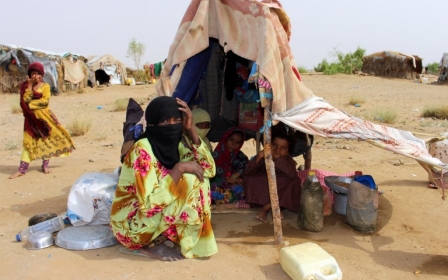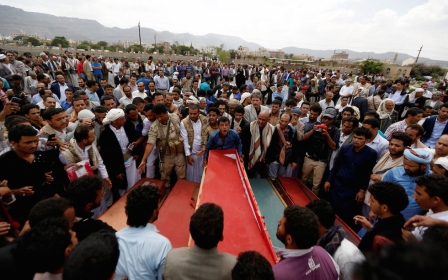Unregulated arms trade ruined 'every aspect of civilian life' in Yemen, says ICRC

The unfettered flow of arms into Yemen has fuelled the ongoing civil war and helped "erode almost every aspect of civilian life," according to the president of the International Committee of the Red Cross (ICRC).
Speaking in Geneva, Peter Maurer, head of the ICRC, urged countries around the world to act on the Arms Trade Treaty (ATT), which was adopted by the UN in 2013.
His comments come as countries from around the world meet in Geneva this week to discuss how best to implement the ATT as the civilian death toll continues to rise in Yemen and other civil wars around the world.
The treaty is intended to regulate the sale of small arms, battle tanks, combat aircraft and warships. It came into force in 2014 but has failed to cut the flow of weapons around the world.
"The words of the treaty remain hollow if they are not matched with actions, and result in changes in policies and behaviour," said Maurer during his remarks in Geneva.
"Recently in Yemen, I saw how the war is eroding almost every aspect of people's lives. The arms trade is rife and continues to flow despite repeated violations of international humanitarian law.
Recently in Yemen, I saw how the war is eroding almost every aspect of people's lives
- Peter Maurer, head of the ICRC
"ICRC research confirms that when conventional arms are poorly regulated and widely available, the humanitarian consequences are grim: violations of international humanitarian law and human rights law, restricted medical and humanitarian assistance, prolonged armed conflicts, and high levels of armed violence and insecurity... even after wars have ended."
The other country mentioned in his speech was South Sudan and the continued civil war taking place in the country.
The speech coincides with the opening of a major international arms fair in east London, which has seen daily protests by anti-arms trade campaigners in the run-up to the event. DSEI is advertised as "the world leading event" for buyers and sellers of weapons and is expected to draw 34,000 visitors, including the UK defence minister and delegations from numerous Middle East states accused of rights abuses.
Maurer used his remarks to emphasise how the Arms Trade Treaty has provided a good "foundation" for its implementation but urged signatories to the treaty to "turn words into deeds and protect communities from the worst brutalities of war".
"Arms transfers are at their highest levels since the end of the Cold War," said Maurer. "Arms continue to flow – overtly and covertly – to belligerents and violent extremism in parts of the Middle East, Africa and Asia, and feed organised crime in the Americas."
In June, the UN said that Yemen was facing the "world's worst cholera outbreak".
According to latest figures, more than 2,000 people have died from cholera since late April and 600,000 people have been infected.
The UN has blamed the outbreak of cholera on all sides in the country's outgoing conflict.
More than 90 states have signed the ATT in a bid to regulate the multi-billion dollar arms trade, while a further 41 states have signed the treaty but not ratified it.
Middle East Eye propose une couverture et une analyse indépendantes et incomparables du Moyen-Orient, de l’Afrique du Nord et d’autres régions du monde. Pour en savoir plus sur la reprise de ce contenu et les frais qui s’appliquent, veuillez remplir ce formulaire [en anglais]. Pour en savoir plus sur MEE, cliquez ici [en anglais].




